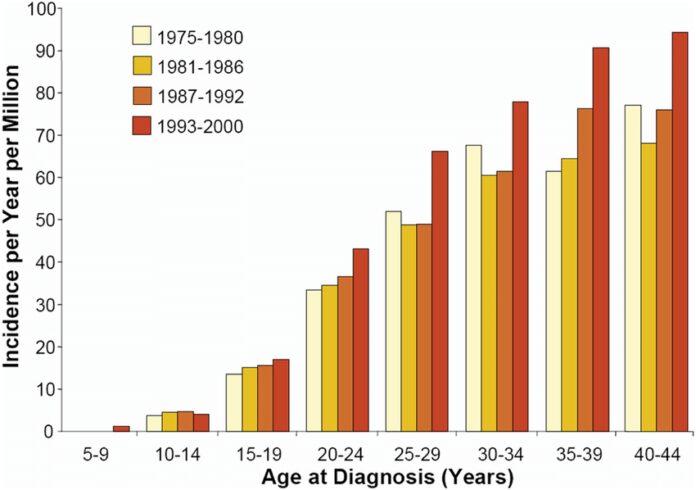Thyroid cancer is a relatively rare but increasingly prevalent form of cancer that affects the thyroid gland, a small, butterfly-shaped organ located at the base of the neck. Despite advances in treatment and diagnosis, gaps remain in the understanding and management of this condition.
The rising incidence of thyroid cancer, particularly in women, highlights the need for continued and focused research efforts. Below, we will explore the key needs and priorities in thyroid cancer research.
1. Understanding the Increasing Incidence

One of the most pressing needs in thyroid cancer research is to understand the reason behind its rising incidence. While improved diagnostic techniques, such as ultrasound and fine-needle aspiration, have led to the detection of more cases, researchers are still unsure if this fully explains the growth.
Other contributing factors may include environmental exposures (such as radiation), lifestyle changes, or genetic predispositions. More research is needed to clarify whether there is an actual increase in thyroid cancer cases or simply an increase in detection.
2. Genetic and Molecular Research
Genetic mutations such as BRAF, RAS, and RET/PTC are known to play a role in thyroid cancer development, but the precise mechanisms of how these mutations lead to cancer remain unclear.
Research into the molecular and genetic basis of thyroid cancer could lead to more personalized treatments, where therapies are tailored to the genetic profile of the tumor. Targeted therapies that inhibit specific mutations hold great promise for improving survival rates and reducing side effects for patients.
3. Improving Diagnosis and Screening Methods

While thyroid cancer is often detected incidentally through imaging done for other reasons, there is a need for better diagnostic tools to accurately differentiate between benign and malignant thyroid nodules.
Current techniques, such as fine-needle aspiration biopsy, sometimes yield inconclusive results, leading to unnecessary surgeries or delayed treatment. New diagnostic technologies, like advanced molecular testing and imaging methods, could help reduce these uncertainties.
Moreover, the development of more accurate screening methods could help identify high-risk individuals, allowing for earlier intervention. Currently, no universally accepted screening guidelines exist, and more research is needed to establish which populations would benefit most from regular screening.
4. Addressing Overdiagnosis and Overtreatment
One of the challenges facing the field of thyroid cancer treatment is the issue of overdiagnosis and overtreatment. Many small, slow-growing thyroid cancers, especially papillary thyroid cancers, may never cause symptoms or affect the patient’s lifespan.
However, once detected, patients are often recommended for surgery or radioactive iodine treatment, which can have long-term health effects.
Research into better ways to predict the behavior of small tumors and distinguish between aggressive and indolent forms of thyroid cancer would allow for more conservative management strategies, such as active surveillance, to be used more confidently.
5. Long-Term Survivorship and Quality of Life

Thyroid cancer often has a favorable prognosis, with high survival rates for most types. However, patients may still experience long-term side effects from treatment, such as hypothyroidism, fatigue, and issues related to surgery, such as voice changes.
Research into improving the quality of life for thyroid cancer survivors, as well as long-term follow-up care, is essential.
Additionally, as the number of thyroid cancer survivors increases, there is a need to better understand the risks of recurrence and how to manage these patients over the long term.
Conclusion
While significant progress has been made in the field of thyroid cancer research, there are still critical areas that require further attention. From understanding the reasons behind its rising incidence to developing more precise diagnostic tools and novel therapies, ongoing research is essential for improving outcomes for thyroid cancer patients.







